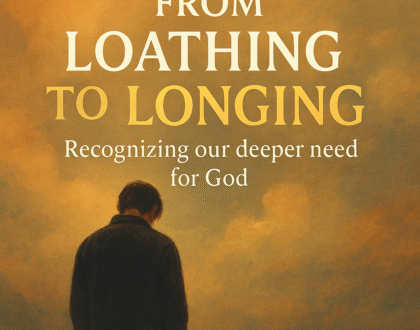How Can God Love Someone Like Me?

The longing to solve mysteries is woven into our lives, from childhood games to the deep questions of faith. One of the greatest mysteries is this: Who can truly dwell in the presence of God? Psalm 15 lays out a daunting list of requirements—blamelessness, truthfulness, justice, generosity—that can leave us feeling unworthy and excluded. The psalmist’s answer seems clear, but it also exposes our inability to meet such a standard. This tension leads us to wrestle with our own shortcomings and the persistent question: How can we ever be good enough to know God?
Turning to the prophet Amos, we see a people who have failed to live justly, exploiting the poor and rushing through worship for the sake of profit. Amos warns that the consequence of such injustice is a famine—not of food, but of hearing the word of the Lord. For ancient Israel, this meant the loss of their very connection to God, a devastating silence. The mystery deepens: If we cannot keep the law and risk being cut off from God’s word, is there any hope for relationship with the Divine?
Paul’s letter to the Colossians offers a profound revelation. Christ is the image of the invisible God, the one in whom all things hold together. Through Christ’s death and resurrection, God has reconciled all things, presenting us as holy and blameless—not by our own merit, but by grace. The mystery, hidden for ages, is now revealed: “Christ in you, the hope of glory.” The answer to who may abide with God is not found in our perfection, but in Christ’s presence within us. God’s love is not withheld by our failures; it is poured out through Christ, who bridges the gap and invites us into communion.
This mystery is celebrated each week at the table of communion, where simple bread and cup become signs of Christ’s body and blood, broken and poured out for all. Here, everyone is invited—regardless of where they are on their journey—to receive grace upon grace. The mystery of God’s love is not something to be solved and set aside, but to be entered into, again and again, as we discover that Christ is already present, already loving, already inviting us to abide.
Key Scriptures from Sunday
- Psalm 15
- Amos 8:4-12
- Colossians 1:15-23, 26-27
Key Takeaways from Sunday
– The standards of Psalm 15 reveal our inability to earn God’s presence by our own righteousness. This honest confrontation with our shortcomings is not meant to drive us to despair, but to awaken our need for grace and a relationship that does not depend on our perfection.
– Amos exposes the consequences of injustice and spiritual apathy: a famine of God’s word and presence. When we neglect justice and compassion, we risk losing our sensitivity to God’s voice, reminding us that true worship is inseparable from how we treat others.
– The mystery of reconciliation is not solved by human effort, but by God’s initiative in Christ. In Jesus, the fullness of God dwells, and through his sacrifice, we are made holy and blameless—not by our own merit, but by the gift of grace.
– “Christ in you, the hope of glory” is the heart of the revealed mystery. God’s presence is not distant or conditional, but intimately available to all who seek. This indwelling Christ is our assurance that we belong, even when we feel unworthy.
– Communion is a living mystery that invites us to participate in God’s love again and again. The simple act of sharing bread and cup becomes a means of transformation, reminding us that God’s grace is for all, no matter where we are on our journey.
Questions for Reflection
1. When you read the requirements in Psalm 15, do you ever feel like you don’t measure up? How do you usually respond to feelings of unworthiness or failure in your spiritual life?
2. Amos connects injustice and neglect of the poor with a loss of connection to God. Are there ways you might be “rushing through worship” or neglecting justice in your own life? What is one step you could take this week to slow down and care for others?
3. Pastor Joanie noted that God’s love is not withheld by our failures, but poured out through Christ. Is there a specific area in your life where you need to receive God’s grace instead of trying to “earn” it? What would it look like to let go of striving for perfection?
4. Pastor Joanie said that the phrase “Christ in you, the hope of glory” suggests that God’s presence is not distant or conditional. When have you experienced God’s presence in a real way, even when you felt unworthy? How can you remind yourself of this truth in hard times?
5. Communion is a living mystery and an invitation to receive grace again and again. How does participating in communion shape your understanding of God’s love and your place in God’s family?
Recommended Posts

Defying Gravity: Rising Above What Pulls You Down
October 2, 2025

God’s Heartbreak
September 22, 2025

From Loathing to Longing
September 16, 2025
